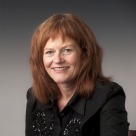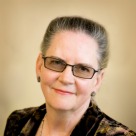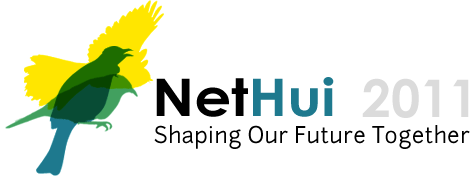NetHui Advisory Board
The NetHui Advisory Board ensures that NetHui 2011 is representative of a breadth of sectors and communities in New Zealand society that have an interest in the Internet.
-

Brett O’Riley
CEO of NZICT Group
Brett O’Riley is the CEO of the NZICT Group, which represents 300 companies in the Hi-Tech and Information Communications Technology industries.
Brett is passionate about the opportunity for ICT to transform New Zealand, and is a regular commentator on industry issues and trends.
He is Chairman of the Computer Clubhouse Network, Co-Chairman of the Square Kilometre Array Industry Consortium, a member of the Government’s Procurement Reform Strategy group and the Engineering Leadership Forum. Brett is a trustee of both the Hi-Tech Trust and the Harbour Sports Trust, and a Director of several private companies.
While there has been a lot of discussion recently about broadband, the very nature of the way the Internet functions is being seriously questioned globally – the NetHui will be where the industry debates those issues in a New Zealand context.
I am passionate about the development of the Internet of Things, particularly in the area of M2M (Machine to Machine), which I believe is crucial to our economic growth prospects. -

Rod Drury
Founder and CEO of Xero
Rod Drury is CEO and founder of NZX-listed Xero, an online accounting solution for small businesses.
He is one of New Zealand’s leading technology entrepreneurs, a member of the New Zealand Hi-Tech Hall of Fame, New Zealand Hi-Tech Entrepreneur of the Year in 2006 and 2007, World Class New Zealander for ICT in 2008, and an Honorary Fellow of the NZ Computer Society.
Rod is a Director of the New Zealand Stock Exchange, was a Director of TradeMe when it was sold to Fairfax Media and is a member of Victoria University of Wellington Faculty of Commerce Advisory Board.
Rod is also a founder and Director of Pacific Fibre, a new international fibre cable project connecting Australia and NZ to the USA.
The Internet is allowing New Zealanders to connect to anyone, anywhere in seconds, transforming our position in the globe. It’s time for a New Zealand strategy, leveraging the fact we are small enough to get together, in order for us to step change New Zealand’s place in this new digital world.
-

Judge David Harvey
District Court Judge
Judge David Harvey was appointed as a District Court Judge in 1989. He has been closely involved with Information Technology initiatives involving the Judiciary undertaken by the former Department of Justice and the present Department for Courts, including the development of trial management software.
In addition to his Judicial duties, Judge Harvey is consultant editor for Butterworths “Electronic Business and Technology Law” and a member of the Editorial Board for Butterworths “Technology Law Forum”.
Judge Harvey is a part-time lecturer at the Faculty of Law, University of Auckland, teaching Law and Information Technology. He has written extensively in the field of law and technology and has presented a number of papers to conferences both in New Zealand and overseas on related topics. He was Chair of the Copyright Tribunal (2002 – 2008) and has had published a book on the law and networked systems entitled internet.law.nz – Selected Issues , now in its second edition. He is engaged in study for a PhD degree.
Nethui is an occasion for forward-looking debate and discussion surrounding ICT and associated issues – necessary for anyone interested in the future.
-

Mike O’Donnell (MOD)
Head of Operations, TradeMe
Mike “MOD” O’Donnell works as Head of Operations for Trade Me. Prior to this he was Head of Commercial and Regulatory, and has worked in a number of senior roles in media, marketing and investment. He has also worked in government, in New Zealand and offshore.
MOD is currently on boards of Serato Audio Research and Positively Wellington, chairs the NZ Police Web Oversight Group and acts as adviser to organisations going through change, typically change connected with customer access or the web.
In 2011 the World Wide Web turns 21. Over that time the web has gone from brave new world to the default way we live our lives, from paying power bills to cheating at pub quizzes. Given the speedy infiltration of the Internet into our lives, it is surprising that little has happened in terms of trying to get our head around the big picture here in little old New Zealand. It’s my hope that NetHui 2011 will provide that opportunity.
-

Sue Chetwin
Chief Executive of Consumer NZ
Sue Chetwin is the Chief Executive of Consumer NZ. Sue is responsible for the organisation’s research and commercial publishing activities, is Consumer’s public spokesman on current consumer issues and is its representative on a number of industry and government organisations.
The principal aim of Consumer is to collect and disseminate information and in so doing, advance the interests of its subscribing members and those of consumers generally. This is achieved through research, the publication of Consumer magazine and through consumer.org.nz .
Sue joined Consumer four years ago after more than 25 years in news journalism. She has edited all three of the country’s Sunday newspapers and was a business manager at NZ Magazines, publisher of The NZ Listener and NZ Woman’s Weekly.
The Internet has completely changed the way we conduct our lives – from buying and selling, and doing our banking, to instantly keeping up with the world and our friends. For Consumer NZ it is the most important way we talk to our members and supporters. And like many businesses it’s where our staff spend much of their working day. The Internet has brought huge social and economic benefits. NetHui 2011 will be a chance to discuss those and, importantly, the responsibilities that go with those benefits.
-

Richard Orzecki
Chair of Māori Internet Society/Te Whānau Ipurangi Ō te Ao
As well as Chair of the Māori Internet Society, Richard Orzecki is Deputy Chair of the New Zealand Maori Council, Māori Council Deglate for Raukawa, Chair of Raukawa District Māori Council and on the Manukau School Board of Trustees.
Richard is also a Board Member of the Whanganui DHB and Mid Central DHB and Deputy Chair of Enable New Zealand. He is Alternate Trustee of the Crown Forest Rental Trust, Director of Horowhenua PHO, Chair for the Manawhenua Hauora Iwi Consortium of the Mid Central DHB and Executive member of the Federation of Māori Authorities.
The Māori word Hui has many definitions which include convention, conference, cluster, meeting, assemble, band together, flock together, function and gathering, I am sure the NetHui will allow all of the above to happen and hopefully have some fun as well.
-

Marie Shroff
Privacy Commissioner
Marie Shroff became Privacy Commissioner in 2003. She has led the office in seeking innovative, business friendly solutions for privacy protection in the digital age. This has included work on health information, the credit reporting industry, e‑government, and more recently, cloud computing. She has also headed major enquiries including the handling of New Zealanders’ information in international banking, aspects of Google’s operations and the health insurance industry.
For many people, the Internet has become a primary means of interacting with the world, whether in the personal sphere or business world. We might use it to do our banking and shopping online; to keep in touch with friends; register for services; engage in debate, or to find out information or news. It is hard to imagine a life now that is not online. Information is the currency of the online world and personal information is the most valuable part. We are interested in capturing those huge social and economic benefits in ways which also respect the people behind that information and ensure they have control and choice. NetHui is an opportunity for us all to focus our minds on where we are at and where we might go.
-

Brendan Boyle
Chief Executive of DIA and NZ Government CIO
Brendan Boyle commenced his role as Chief Executive of the Department of Internal Affairs on 4 February 2008, having been Chief Executive of Land Information New Zealand since August 2003. Prior to that he was the inaugural Director of the e-Government Unit at the State Services Commission, charged with leading the development of an e-government strategy and work programme.
Brendon holds a law degree (1990) from Otago University and an MBA (2000) from the Sloan School of Management at the Massachusetts Institute of Technology. In February 2011 he also assumed the role of Government Chief Information Officer. He has also completed further executive education at the Harvard Business School and at INSEAD in France.
We already know that New Zealand has one of the highest rates of Internet connectivity in the OECD and that about 80 per cent of New Zealanders use the Internet to do their banking, purchase online, make restaurant reservations and book travel. Facebook, Trade Me, Seek and Google are the new verbs used in everyday language. And mobile devices (ipads, iphones, Blackberries, androids) are fast becoming the device of choice.
The challenge for government is to keep up with the way people use the internet, by delivering more frontline services online.
Stream Leaders
Each stream at NetHui is organised by a key community member, reaching out through their contacts and organisations to bring together the set of discussions of most value to their communities and New Zealand at this point in time.
-

Colin Jackson
for the Governance and Legal stream
Colin Jackson has been involved in the Internet in New Zealand since 1990. He was the government’s first advisor on the Internet and worked to build the first New Zealand government web site. He is a founder of InternetNZ and a former president of InternetNZ.
Colin is a technology consultant and commentator. He frequently contributes to the media and is often called upon to explain technology issues for a general or business audience. Originally a developer, Colin has worked in the private, not-for-profit and government sectors. His work now mostly involves the strategic use of ICT.
-

Ellen Strickland
for the Access and Diversity stream
Ellen Strickland is a researcher and practitioner with a passion for understanding the relationship between ICTs and society. She is a Board Member and current Secretary of the Pacific Islands chapter of the Internet Society (PICISOC).
Ellen has been an advisor, consultant and now academic in the area of communications, with a special interest in the Internet and ICTs, since 2000. She has worked with governments, higher education and civil society in New Zealand, the Pacific Island region, Australia and the UK.
Ellen is aligned as a researcher with the Centre for Communication and Social Change at the University of Queensland, finalising a doctoral research project on ICT policy formation, and she is currently tutoring at the Department of TV, Film and Media Studies at the University of Auckland.
-

Martin Cocker
for the Cybercitizenship Stream
Martin Cocker is the Executive Director of NetSafe New Zealand, a non-profit multi-sectoral membership organisation established in 1998 to provide cybersafety services to New Zealanders. Martin has also served as the Oceania Co-ordinator for the Global Knowledge Partnership from 2007 to 2009.
Before joining NetSafe, Martin worked in the ICT industry for 12 years including five years as the General Manager of a national educational ICT services provider.
-

Laurence Millar
for the Government and Openness Stream
Laurence Millar is an independent advisor in the use of ICT by governments, Editor at Large for FutureGov magazine, and Treasurer of 2020 Communications Trust.
During a career of more than 35 years, he has worked in the public and private sector, in the UK, USA, Asia and New Zealand. From 2004, he led the New Zealand e-government programme providing leadership in strategy and policy, establishing a foundation of shared infrastructure, and maintaining oversight of government ICT investment; he finished in the role of NZ Government CIO on 1 May 2009.
Laurence has written and spoken extensively about the importance of open government to strengthen trust between government and the people. He believes passionately in the power of open government data to support a more effective dialog between citizens, businesses, civil society (NGOs) and government.
-

Paul Matthews
for the Innovation and Emerging Issues Stream
Paul Matthews is the Chief Executive of the NZ Computer Society (NZCS) and a well known leader, ICT commentator and senior IT professional based in Wellington, New Zealand.
He has been Chief Executive of NZCS, the professional body of the ICT sector, for 3 years, bringing a renewed vision and focus to the organisation and instilling a culture of action and proactive achievement. A large part of this vision has been focusing the organisation on ICT skills and professionalism including the implementation of ITCP, New Zealand’s professional certification, ICT competency framework and standard.
During this time Paul has also taken an active role in ICT education in the secondary space advocating for and contributing to a redesign of ICT education, curriculum and standards in schools throughout New Zealand. His team is also currently implementing Degree Accreditation throughout New Zealand’s tertiary community and in 2009 designed the KiwiSkills Programme, now making significant headway reducing digital illiteracy across New Zealand.
-

Derek Wenmoth
for the Education Stream
Derek Wenmoth is Director of eLearning for CORE Education Ltd, a not-for-profit educational research and development organization based in Christchurch, New Zealand.
Derek has a broad background in education, with experience at the primary and secondary school level, and as principal lecturer at the Christchurch College of Education, manger of e-Learning at the Correspondence School, and as a senior policy analyst and adviser to the Ministry of Education where he was instrumental in formulating a national eLearning framework.
Derek has a particular interest in exploring the ways in which ICTs can be used to create rich and meaningful learning environments and experiences for students, and how the integration of these technologies into all facets of our social and learning lives is shaping the way learning occurs and communities are formed. Derek has a particular interest in the way our engagement with new technologies is shaping our lives as educators and as learners, and also how this impacts on the nature of schools and schooling in the 21st century.
In 2008 Derek was recognized as one of the George Lucas Education Foundation’s “Global Six”, awarded annually to educators “who are reshaping the future of education”.
-

Douglas Harre
for the Education Stream
Douglas Harre has spent the last nine years in the e-Learning Unit at the Ministry of Education where he had close involvement with all the major ICT-based projects that impact on New Zealand schools today – including the national software agreements, the Teacher Laptop programme, cybersafety and Project PROBE.
He recently accepted a position as Senior ICT Consultant at Core Education assisting schools to realise the benefits of the upcoming UFB rollout.
Douglas taught high school geography and outdoor education in NZ and the UK for many years. Like many in education he moved into the online world as a way of providing his students with a richer diversity of learning opportunities.
-

Ray Delany
for the Innovation and Emerging Issues Stream
Ray Delany has over 30 years of experience managing ICT in a range of different business environments. He is a change agent with a reputation for achieving high performance in organisations, and has been involved in executive management at strategic, operational and project level for over twenty years. During this time he has worked in private and public sector organisations and has been responsible for a number of nationally significant ICT programmes in the NZ health sector. Ray holds a Master of Management and a Diploma in Business from the University of Auckland, is a Fellow and current President of NZCS.










